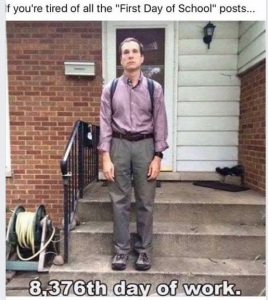Nobody expects 18-year olds graduating high school, or anyone half way through college or university, to be experienced at something. We don’t expect a high school grad to do the rough-in plumbing in an entire new house. We don’t expect a first year university student to do a full set of final architectural drawings, a pre-med student to diagnose a patient, or a future teacher to teach a junior high school class today. Why? Common sense: Because they haven’t finished their education and aren’t trained or experienced. That’s not an issue of “fault,” but an issue of timing and experience. They’ll get there – they’ll be great at it – just not today.
However, with money, credit and financing it’s exactly the opposite. OK, you’re now 18 or older – best of luck with student loans, how to pay for an apartment, how to save, manage your credit card, and/or knowing the five things to watch for before you buy a vehicle. That’s also not a “fault” issue – it’s an experience issue, too. But we know they’ll get experience in their career after high school or two or four years of university before we set them loose, start to expect things, and judge them. That’s all AFTER they’re fully done with schooling, apprenticing, training, and/or an internship.
The first, and pretty big, money, savings, credit and finance decision come at them the opposite way. They happen before they have any experience or knowledge. In other words: Make the decisions, sign the loan, use the credit card, decide on the overdraft, and THEN you’ll get the education. By then, the education is that they’ve messed up and made a lot of wrong decisions. In that case, they’re digging out of a hole for the next decade or longer.
That’s the exact opposite of how they get hired: First comes the education, qualifications, safety training, coaching, more training, and THEN we set them loose. As a result, most of these 18 to 25 year olds never had a chance.
However, in areas where the high school curriculum provides money, investing, and finance courses, the impact is pretty significant. In the U.S., there are eight states who do that. In surveys way after graduation, it shows that these kids have more in savings and investments, are way less likely to be in debt, to use or abuse credit cards, or ever go near payday lenders. They also have lower student loan balances, and pay them off sooner. So the key is to get them informed, because knowledge is power. And that’s back to the premise of not graduating them backwards.

